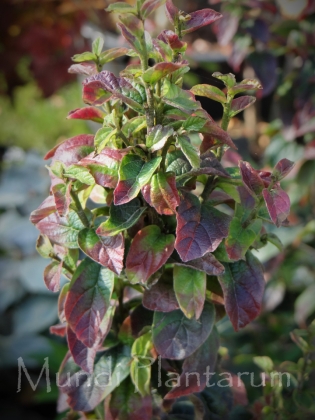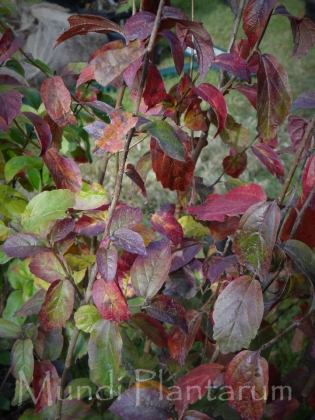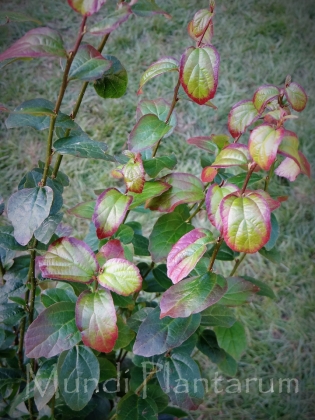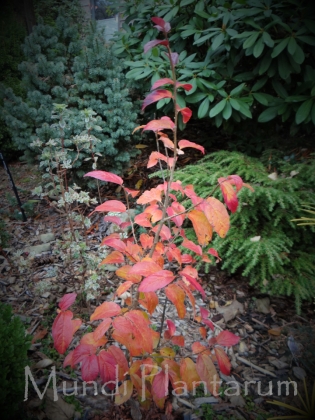Small tree fastigié, with narrow and tight port. The green leaves are bordered with purple in spring before becoming fiery red orange in autumn. Height 3m.
Parrotia persica 'Persian Spire'
Famille:
Hamamelidaceae
Classification
Trees and shrubsClimate
Zone 6: from -23°C to -17°CLeaf color
- Orange
- Cardinal red
- Red
- Green
Flower color
- Cardinal red
Sun exposure
- Sunny
- Part shade
Size
2 to 3m
50 to 100cm
Ornamental interest
- Foliage
- Columnar port
Notable plant
- In autumn
Type de sol
- Acidic
- Limestone
- Neutral
Garden use
- Isolated
- Massif
- Parterre
DESCRIPTION GENERALE
- ORIGINE: Horticole ; obtenteur John Lewis, JLPN Nurseries, Salem (US).
- CLIMAT: Résiste à -20°C.
- EXPOSITION : Ensoleillée à mi-ombre.
- SOL: Humifère frais et acide, peu supporté le calcaire.
- CROISSANCE : Lente.
- PATHOLOGIE: Très résistant aux maladies et aux parasites.
- MULTIPLICATION: Greffage.
- TAILLE: Supprimez quelques branches divergentes en hiver, si nécessaire.
- UTILISATION: Pour petit jardin.
- MERITE: Médaille de bronze Plantarium 2015.
- NOM VERNACULAIRE :
- SYNONYME : Parrotia persica Persian Spire (R) 'JLPN01' cov.
PHYSIOLOGIE GENERALE
- DIMENSIONS: Peut atteindre 3m de haut en 10 ans sur 1m de large..
- PORT: Arbuste en colonne étroite. Fastigié.
- TRONC:
- ECORCE:
- BRANCHES : Dressées.
- NOTE:
PHYSIOLOGIE DES FEUILLES
- FORME: Fines.
- COULEUR: Les feuilles sont pourpres au printemps puis vertes foncées largement bordées de pourpre, virant au jaune orangé à rouge en automne.
- BOURGEONS:
- STOMATES:
- NOTE:
PHYSIOLOGIE DES FLEURS
- EPOQUE: Février-mars.
- FORME:
- COULEUR: Rouge pourpre.
- NOTE: Nef leurit pas beaucoup.
PHYSIOLOGIE DES FRUITS
- FORME:
- COULEUR:
- GRAINES :
- NOTE :



